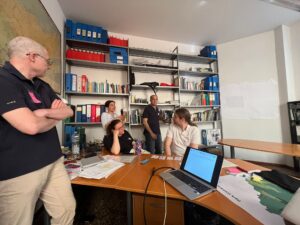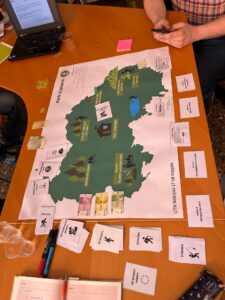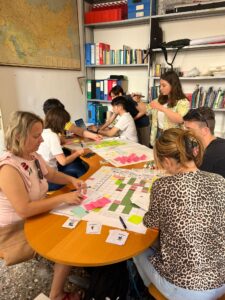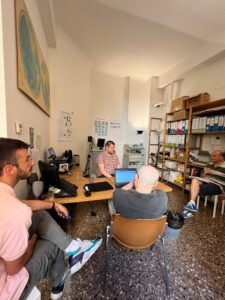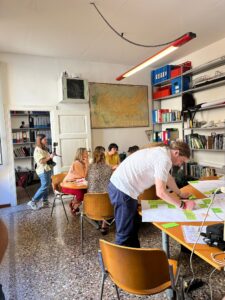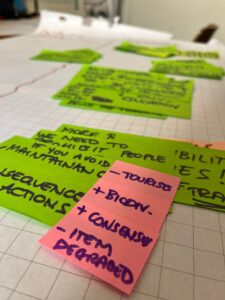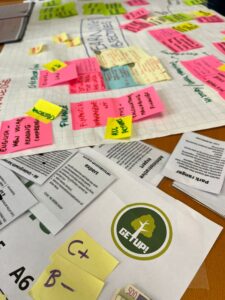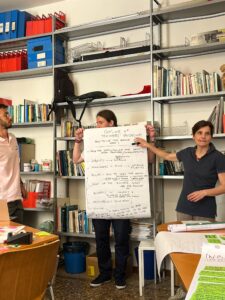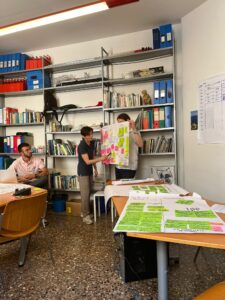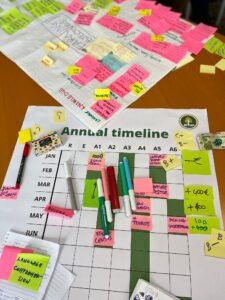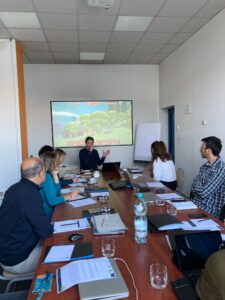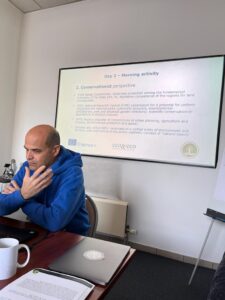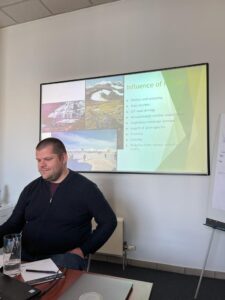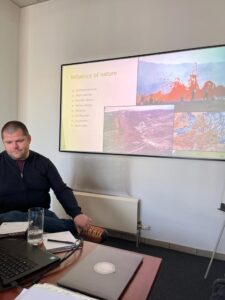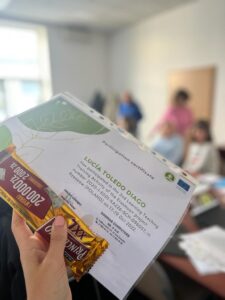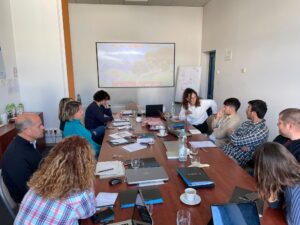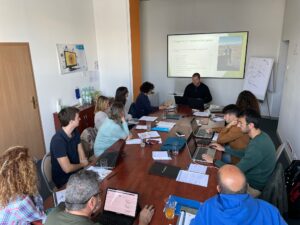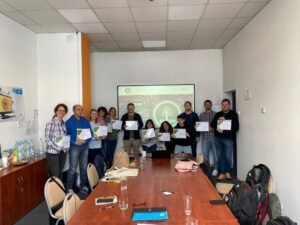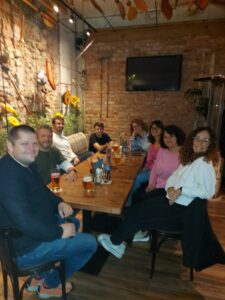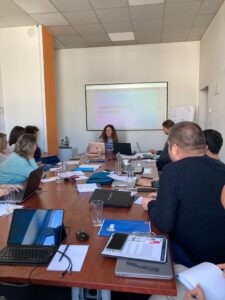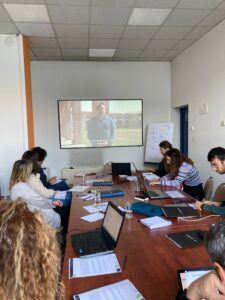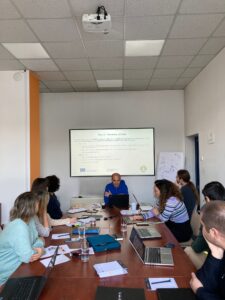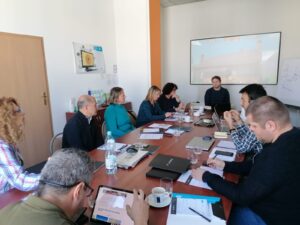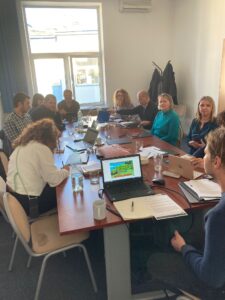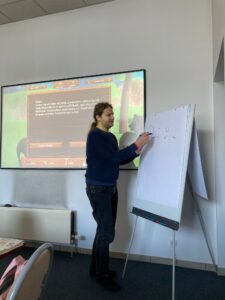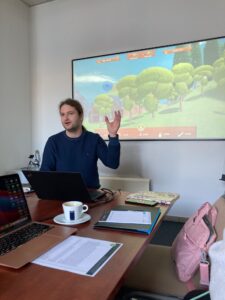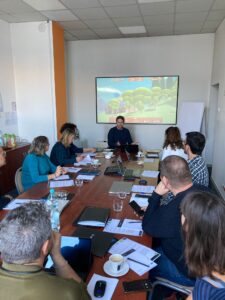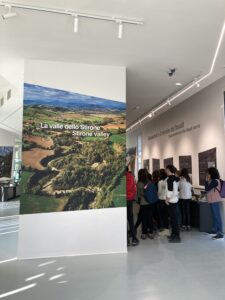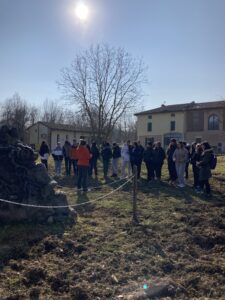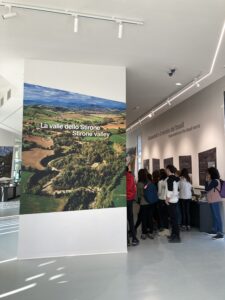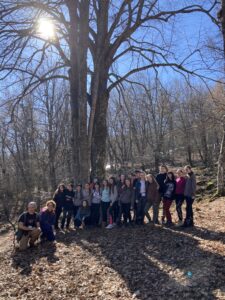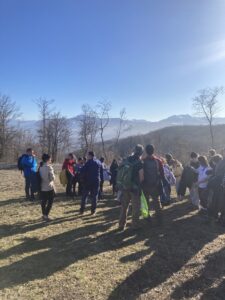C1: Short-term joint staff training events
The first LTTA is dedicated to the teachers of the upper secondary schools and to Nature park manager. The training was held at the headquarters of one of the project partners: eco&eco, Economia e Ecologia srl. The main objectives of the two-day training are:
*define the main steps for the development of the “GET UP!” educational game for appropriate management of nature parks
*gather improved input for the game following the educational training needs related to the school curricula to be pursued and the role of teachers in the educational process using the game.
For the meeting, a table version of the game was prepared by eco&eco and InEuropa. Partners were divided into two groups, one including park experts and the other including school teachers and education experts, so that each group could bring his own ideas and perspective on the game. This activity proved to be very effective as all the partner suggested possible modifications to improve the quality of the game.
C2: Short-term joint staff training events
Each partner will bring its expertise on nature conservation and the functioning of parks (EPEO, e&e, UEAI), the environmental education activity (LCE, EPEO), the education of upper school students (GKŠM, IESJV), gamification (InEuropa) and digital tools and educational game (DC) to set up the main features of the educational tool design and development. The IO4, the game for educational environment, will be halfway to its finalisation at the moment of this activity, so the partner in charge of its development will present the game, that could be tested by the partners and they could include modification.
The event will last three days and it will be divided as follows:
- DAY 1: (Morning) EPEO, e&e and UEAI will present challenges of nature conservation and functioning of parks, and possible solutions related with the education; (Afternoon) LCE and EPEO will discuss environmental education, and ideas on how to include it on a cross-cutting basis.
- DAY 2: GKŠM and IESJV will focus on the main problems encountered in upper secondary education, and the early-leaving school issue. They will share ideas on how they try to motivate their students and what students are looking for when they go to class.
- DAY 3: DC will present the steps and teach the design of the game, at the end of the session, the partners will test the beta game and give feedback about it. This LTTA is based upon co-work and open brainstorming methods, all the information shared during this LTTA will be useful for the development of IO4 and IO5.
The goal of the activity is to share impressions, objectives and expertise for the design of the digital educational tool and the guidelines, while learning about new concepts, improving the professional development of all the organisations about teaching methods, innovative tools and current issues of the world related with the environment. Moreover, it will contribute to the three objectives of the project, 1) innovative and digital gamification as an educational tool for upper schools on Parks and environment; 2) promotion of biodiversity protection and natural parks as relevant social and educational value of European cultural heritage, with strong connections to job creation and economic growth; and 3) strengthening the profile of the teaching professions with new skills and knowledge in Digital tools and gamification, thanks to the participation of different types of experts in the activity.
C3: Field visit and experimental application of the method
The LTTA is organized as follows:
Day 1:
- morning: educational seminar held in EPEO headquarter on features and mission of a nature park; discussion of the grid to collect information from parks;
- afternoon: field-visit to the River Taro Regional Park, interviews of park representatives (officers, inhabitants, stakeholders like tourism operators and farmers)
Day 2: field-visit to Apennines Cento Laghi Regional Park
Day 3:
- morning: testing of the beta game by the students.
- afternoon: a de-briefing on the relevant information extracted and the best questions and method to get the results, discussion on the feasibility of the method in other territories, will also be discussed.
The goal of the activity is to transfer information on the issues of environmental conservation, the functioning of nature parks, and the development of the GET UP! project activities with students. It directly contributes to objective 2 (promotion of biodiversity protection and natural parks as relevant social and educational value of European cultural heritage, with strong connections to job creation and economic growth), as the students will learn about the natural park management in person and will be able to ask doubts and learn how the protected parks work and are organised.
24 students and 3 accompanying teachers from each secondary school partner in the project.

 Italiano
Italiano Polski
Polski Slovakian
Slovakian Español
Español Ísland
Ísland